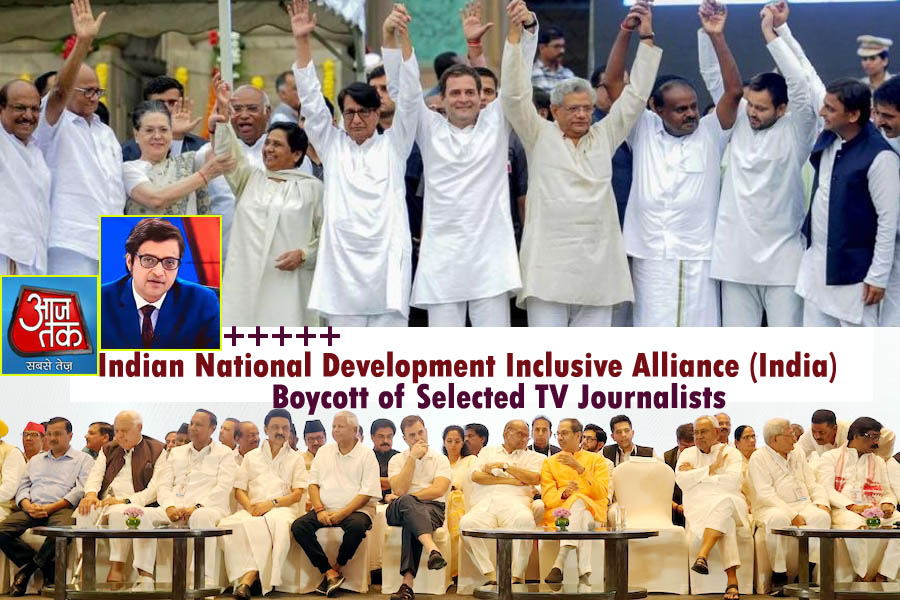
New Delhi, The Indian National Development Inclusive Alliance (India), a prominent opposition coalition, has declared its intention to boycott certain television journalists in a move aimed at addressing concerns over divisive and inflammatory media content. Leading this initiative is Pawan Khera, who serves as both the leader of the Indian Congress and the head of the communication and publicity department within the coalition. Khera released a list of targeted journalists on Thursday, which includes notable names such as Sudhir Chaudhary, editor of 'Aajtak' channel, and Arnav Goswami, editor-in-chief of Republic Television. The decision to boycott these journalists and their programs was reached during a meeting of the coordination committee of the opposition coalition India held on Wednesday. The alliance has decided not to send its leaders and spokespersons to the programs hosted by these 14 journalists. Explaining the rationale behind the boycott, Congress leader Khera stated on the social networking platform 'X', "Every day from 5 pm on some channels, a store of hate is being decorated. We will not become customers of the market of hate. Our aim is 'Hate Free India.' We do not participate in the programs of some anchors because we have a heavy heart." Khera emphasized that despite the relentless dissemination of unrestrained comments and false news targeting their leaders, they remain committed to fighting against hatred and vowed not to contribute to its spread within society.
The Congress party has accused journalists who remained silent in the face of the deaths of police and military officers in Jammu and Kashmir of being complicit and included them on the boycott list. Khera also alleged that Indian Prime Minister Narendra Modi had celebrated when army personnel were martyred. Drawing parallels with these journalists' actions, Khera remarked, "This is not a list of journalists; this is a list of those who are 'Charan Chumbak' of Modiji." The list of journalists to be boycotted by the opposition alliance, in addition to Goswami and Chaudhary, includes Aditi Tyagi, Aman Chopra, Amish Devgan, Anand Narasimha, Ashok Srivastava, Chitra Tripathi, Gaurav Sawant, Navika Kumar, Prachi Parashar, Rubika Liaquat, Shiv Arur, and Sushant Sinha. In a related development, the Indian government's proposal for a special session of parliament to discuss the 'One nation, One election' issue has stirred controversy. While the government has expressed interest in exploring the feasibility of simultaneous elections, many opposition leaders have raised objections. They argue that implementing such a reform could undermine federalism and negatively impact regional parties and their leaders. The issue remains a subject of heated debate and requires extensive consultation among political stakeholders.
The concept of 'One nation, One election' seeks to hold national and state elections simultaneously to reduce costs, streamline governance, and minimize the impact of electoral politics on public life. Critics argue that the logistical and constitutional challenges of implementing this reform make it unlikely to be realized in the near future. As the political landscape in India continues to evolve, the debate over these issues is expected to intensify, with the government and opposition parties engaged in a rigorous exchange of views and strategies.